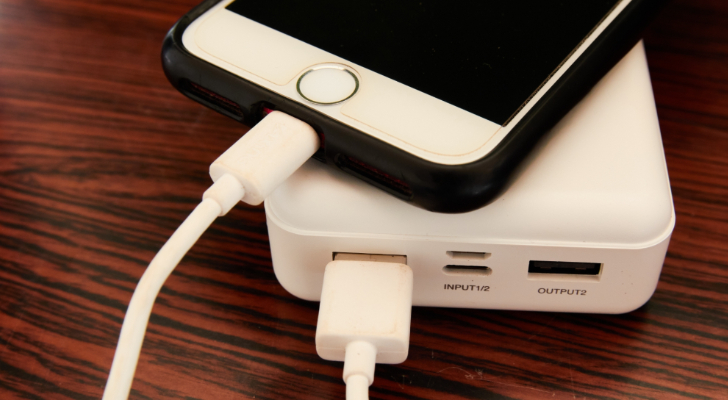 If you do a lot of traveling, it may be a good time to upgrade the equipment that helps you stay connected while you are away from home or from your office desk. A portable charger can keep your devices charged during your travel time.
If you do a lot of traveling, it may be a good time to upgrade the equipment that helps you stay connected while you are away from home or from your office desk. A portable charger can keep your devices charged during your travel time.
Portable chargers can also be useful during vacations, concerts, sporting events, and any long periods away from an outlet. Also, don’t forget about the importance of chargers in case of emergencies!
Portable Chargers
Experts have a lot to say about what features to look for in a portable charger and how you can determine which one is best for charging your smartphone, laptop, wireless earbuds, or other portable devices. Compatibility, charging capacity and speed can all be determining factors when choosing the right portable chargers for your devices.
Choosing your portable charger
When shopping for a portable charger, it is good to think about a balance between capacity and size. You want something that can charge your devices as much as possible, but that also fits comfortably in your backpack or purse, Charging capacity is often measured in either milliamp hours (mAh) or watt-hours (Wh).
- Milliamp hours (mAh) can be useful comparing the capacities of different battery packs: A 5,000mAh battery pack will provide fewer charges than a 12,000mAh model.
- Watt-hours (Wh) will give you the best estimate of how much or how many times the charger can charge your device.
While phone manufacturers usually use mAh as a spec, watt-hours is a more accurate rating of capacity according to some experts. If your battery pack uses Wh, you can compare the watt-hours on the battery pack to the number of watt-hours held by the device you want to charge. For example, a 12Wh battery could fully charge a 4Wh device three times. Keep in mind that physically larger devices usually have bigger batteries. Larger phones and tablets will need more energy to get to 100 percent compared to smaller versions. Ultimately, you’ll need to balance your charging needs with how much space you have to lug a battery bank around.
How long does a portable charger take to charge devices?
Just about any battery pack will charge your phone, but some can do it faster than others by using different fast-charging standards. USB ports are typically anywhere from 1Amp up to 2.4Amps — the higher the amps, the faster your device will charge. There are guides that can be found online to get more detail about this. Some phones will come with proprietary Quick Charge (QC) tech, either using third-party offerings or their own branding. Sometimes you’ll see Quick Charge-branded USB ports on battery packs. If your phone is compatible, it’ll charge even faster through that port.
Many modern devices use a simpler USB Power Delivery (PD) standard, which means they will charge as fast as they can with whatever PD-compatible charger or battery bank you plug them into. USB PD chargers work with your device to determine the optimal charging power up to 100W in order to charge as quickly as possible. Newer PD-compatible battery banks measure charging speed in watts and are more widely supported by modern tech companies. You can see which fast-charging standards your phone supports by checking its page on the manufacturer’s website.
How to shop for a portable charger
Choosing the right battery pack is just a matter of comparing its wattage to your device’s charger. If the user guide for your device says that it works best with a charger that’s rated at 27W and higher, then it is a good idea to look for a charger rated at 27W and higher. Or course, in most cases, your device will still work with a lower wattage charger, though it’ll charge more slowly.
While phones and tablets don’t need much power to charge, laptops might have higher requirements and will need a high-capacity battery pack. You’ll often find laptops measured in the more accurate Wh, in addition to, or instead of, mAh. So, it is recommended that you buy a battery pack that matches or exceeds that number.
Summary: Choose the best
There are certain features that are helpful in determining the best portable charger for you:
- Check compatibility. Always double-check that a battery bank is going to work well with your devices before you buy it. Read the product description and do an online search to check reviews to see if others have had a good experience with a given battery pack on a particular phone model or laptop model. This is especially true if you would like to have fast charging.
- Buy good quality cables. High-quality cables are important for getting the fastest charging speeds possible as well as for safety. Cables that have proper certification are highly recommended.
- Look at return policies. Many portable chargers feature return policies in case they do not work properly. It is good to have peace of mind in case a product does not work properly.



